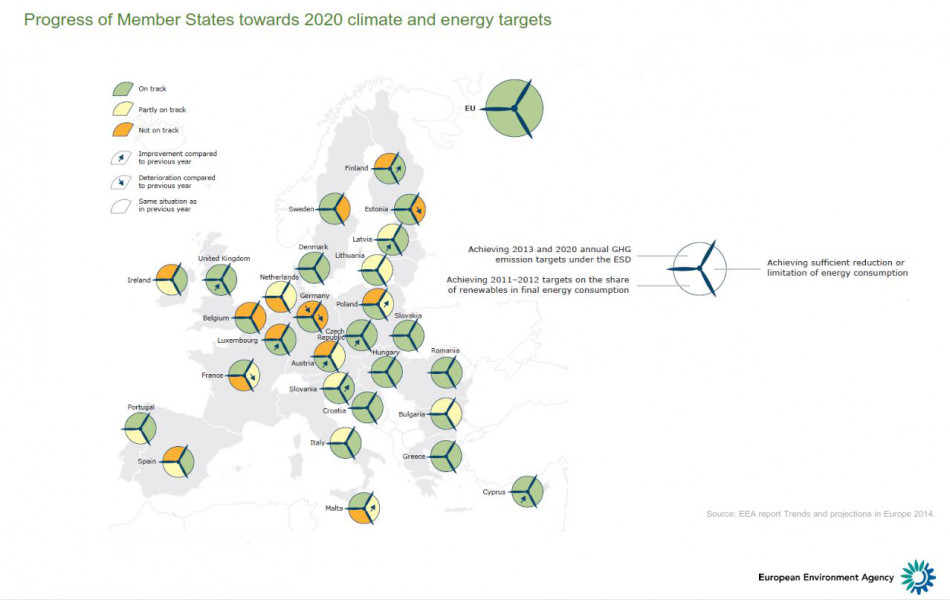In the media: Greenpeace Energy to take legal action over UK nuclear support
Helmholtz Centre for Environmental Research (UFZ)
“No capacity payments to coal- and gas-fired power plants”
Additional payments to operators of coal- and gas-fired power plants are currently not necessary to secure Germany’s electricity supply, according to scientists from various research institutes. Such payments pose large economic risks and could endanger the implementation of the Energiewende, according to a study by the Helmholtz Centre for Environmental Research (UFZ), the Centre for European Economic Research (ZEW), the German Aerospace Centre (DLR), and several universities. The scientists argue instead for a strengthening of the power market, more demand-oriented electricity generation from renewable sources, as well as promoting the extension of grids, storage capacities and demand management.
See the press release from the Helmholtz Centre in German here.
See CLEW’s Dossier on power market reform here.
Greenpeace Energy
“Greenpeace Energy takes action against state aid for nuclear power”
German green power supply company Greenpeace Energy is taking legal action against the European Commission for approving billions of euros worth of state aid for the new British nuclear plant Hinkley Point C. “Highly subsidised nuclear power from this plant will noticeably distort European competitiveness. It will have an effect on prices at the power exchange in Germany as well,” Sönke Tangermann, managing director of Greenpeace Energy, said in a statement. “This effect will have economic disadvantages for committed green power providers like us, and that’s why we are going to court.” The EU Commission approved state aid totalling 22 billion euros for the plant in October, according to Greenpeace Energy.
See the press release from Greenpeace Energy in English here.
German Energy Agency (Dena)
“Households paid more than 50 billion euros for energy use in buildings in 2013”
Private households in Germany spent 53.7 billion euros on heating, warm water, air conditioning and lighting in 2013, according to a report by the German Energy Agency (Dena). Due to rising energy prices, the total bill rose by almost 10 billion euros (adjusted for inflation) within ten years, says the report. But the increase would have totalled more than 20 billion euros if homeowners had not reduced their consumption with energy-saving modernisations and more “energy-conscious behaviour.” According to Dena’s building report, energy use in buildings can still be lowered substantially in Germany, as 65 percent of facades and 35 percent of older roofs are not insulated and 55 percent of heating systems were installed before 1997.
See Dena’s press release in German here.
Spiegel Online
“E.ON and the dismantling of nuclear plants: Fear of a big loophole”
A legal study by the parliament’s scientific service has raised concerns over whether funds set aside by E.ON will be enough to cover the total costs of the pending decommissioning of its seven nuclear power plants, according to a report by Spiegel Online. E.ON, which is to split into two separate companies next year, says it has put 14.5 billion euros in reserve. But that sum partly consists of troubled coal- and gas-fired power plants and thus might not be enough, according to the report. The parliament’s lawyers warn it might be difficult to hold the “new” part of E.ON liable for the costs.
See the news report in German here.
European Environment Agency Synthesis Report 2015
Germany and Europe in danger of missing their climate targets
Looking at the effect of EU policies on a wide range of environmental issues, including water quality, biodiversity, air pollution, noise, agriculture and greenhouse gas (GHG) emissions, the European Environment Agency (EEA) found that it will be challenging for the EU to achieve its 80-95 percent reduction in GHG emissions by 2050 as “anticipated reductions by European countries are still largely insufficient when compared to the recently adopted 40 percent reduction by 2030”. While the majority of member states are expected to meet their individual emission targets for the period between 2013 and 2020, projections for 13 countries, including Germany, indicate that 2020 emissions will not be below their respective 2020 targets (See Figure 1).
The EEA report uses data up until 2012. In 2014, Germany reported a significant fall in both emissions and energy consumption, and is implementing a plan to step up its CO2-reduction efforts. The greatest absolute reductions in GHG between 1990 and 2012 were recorded in Germany, the UK and Romania the EEA says.
Under country-specific issues for Germany, the EEA lists the importance of environmental protection products to the German economy. In 2011, Germany produced potential environmental protection products to the value of almost 85 billion euros (6.2 percent of its total industrial production). Germany was the world leader in exports of environmental goods, with a share of 15.2 percent of world trade in 2011. The EEA expects the importance of the sector to grow, “since all forecasts point to a worldwide expansion of the markets in the years ahead.”
See the EEA country report on Germany here and the EEA report’s chapter “Mitigating climate change – greenhouse gas emissions” here.
See a New York Times article on the report here.
See CLEW's Dossier on Germany’s climate targets and greenhouse gas emissions here.
Frankfurter Rundschau
“Economy beats environment”
Europe is concentrating on saving the euro and forgetting to protect the environment, writes Peter Riesbeck in an opinion piece for the Frankfurter Rundschau, referring to the new environment report by the European Environment Agency (EEA). Angela Merkel, the so called “climate chancellor” wanted to position Germany as a pioneer in the fight against climate change – instead Germany recorded an increase in emissions from burning lignite, Riesbeck says. Similiarily, climate protection plays a minor role in the EU Commission’s new Energy Union, and when setting European climate targets for 2030, the Commission refrained from ambitious goals out of consideration for the ailing economy in some member states. If things continue in this way, Europe may lose its leading role in climate protection and green technology innovation, Riesbeck warns.

